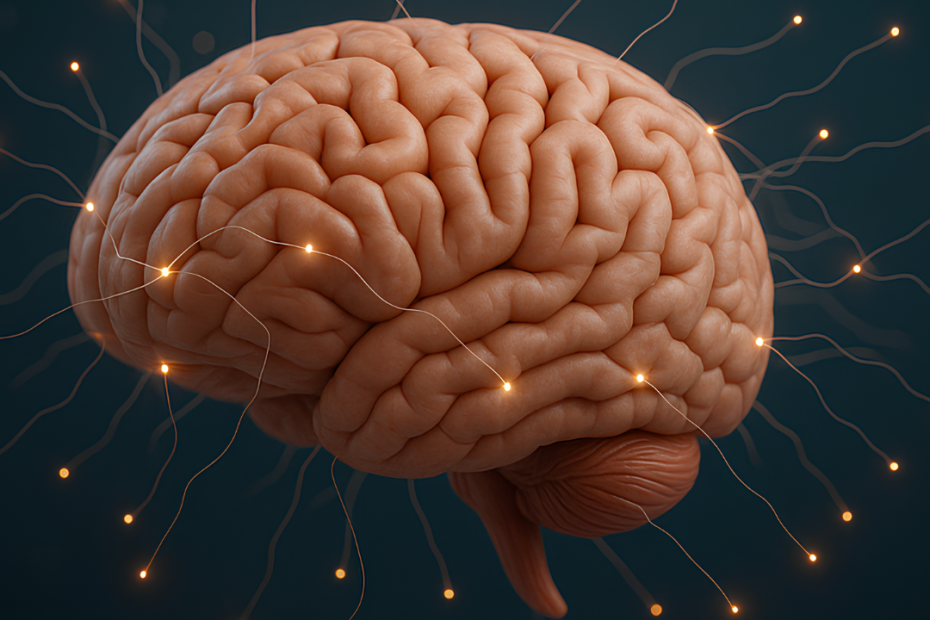As a Direct Primary Care physician at Table Health, Dr. Amy Bodnarchuk is focused on preventative care and empowering patients with the knowledge to lead healthier lives. This June, in recognition of Alzheimer’s & Brain Awareness Month, we turn our attention to the fascinating and critical realm of brain health. Discover how embracing certain lifestyle choices and understanding early indicators can make a significant difference in safeguarding your cognitive future.
In 2025, an estimated 7.2 million Americans age 65 and older are living with Alzheimer’s disease, which is a form of dementia. A recent study indicates that the lifetime risk of dementia for Americans after age 55 is 42%, with the number of new dementia cases expected to double by 2060. This means that there will be 1 million new cases per year. The lifetime risk for the disease at age 45 is 1 in 5 for women and 1 in 10 for men. The brain changes that cause Alzheimer’s are thought to begin 20 years or more before symptoms start.
Cognitive decline refers to minor memory and thinking challenges that can arise with age. While some of these changes are a natural part of the aging process, there are proactive steps you can take to help slow them down. These strategies focus on nurturing your brain through various lifestyle choices:
- Physical Activity: Regular exercise, including aerobic and resistance training, has been shown to improve cognitive function, memory, and mood by increasing blood flow to the brain and promoting the growth of new brain cells.
- Brain-Healthy Eating Patterns: Diets such as the Mediterranean and MIND diets, rich in plant-based foods, whole grains, and healthy fats, are linked to a reduced risk of cognitive decline and even fewer markers of Alzheimer’s disease.
- Mental Stimulation to Keep Your Mind Engaged: Engaging in mentally stimulating activities like reading, playing games, or learning new skills helps maintain cognitive function and memory.
Dementia is an umbrella term for a range of brain disorders that significantly affect memory, reasoning, and daily functioning. While aging increases the risk, dementia itself is not considered a normal part of getting older.
Alzheimer’s disease is the most prevalent form of dementia, though several other types exist. Researchers believe that dementia and Alzheimer’s do not have a single root cause. Instead, they likely result from a combination of factors. Globally, up to 40% of dementia cases may be linked to risk factors that individuals can potentially modify.
The 2024 Lancet Commission update on dementia has added two new risk factors to its growing list: untreated vision loss and elevated LDL cholesterol. These are in addition to the previously identified factors from the 2020 report, which include high blood pressure, smoking, obesity, depression, physical inactivity, diabetes, excessive alcohol use, hearing loss, lower levels of education, traumatic brain injury, air pollution, and social isolation.
Early detection and diagnosis is key to managing dementia effectively. If you have concerns about yourself or someone close to you, being aware of common early symptoms of Alzheimer’s can help you take timely action and seek professional guidance. Because dementia is a progressive condition that gradually impacts thinking and decision-making abilities, it’s important to have early conversations about advance care planning with your family and PCP. Advance care planning gives you the opportunity to communicate your values, goals, and preferences for future medical care. By planning ahead, you help ensure that your wishes are understood and honored, offering clarity, comfort, and peace of mind for both you and your loved ones.
Based on growing evidence, the Alzheimer’s Association launched the “10 Healthy Habits for Your Brain” campaign. These are simple lifestyle choices that may help reduce the risk of memory loss and cognitive decline.
Alzheimer’s and Brain Awareness Month is an ideal time to focus on your cognitive well-being. Adopting brain-friendly habits can make a meaningful difference, no matter your age. It’s always a good time to prioritize brain health.
Sources:
https://www.alz.org/getmedia/ef8f48f9-ad36-48ea-87f9-b74034635c1e/alzheimers-facts-and-figures.pdf
https://www.thelancet.com/journals/lancet/article/PIIS0140-6736(24)01296-0/abstract#:~:text=Two%20new%20modifiable%20risk%20factors,contact%2C%20and%20air%20pollution).
https://www.nia.nih.gov/health/brain-health/cognitive-health-and-older-adults
https://www.uclahealth.org/news/publication/sensory-impairment-and-dementia-risk-whats-connection
